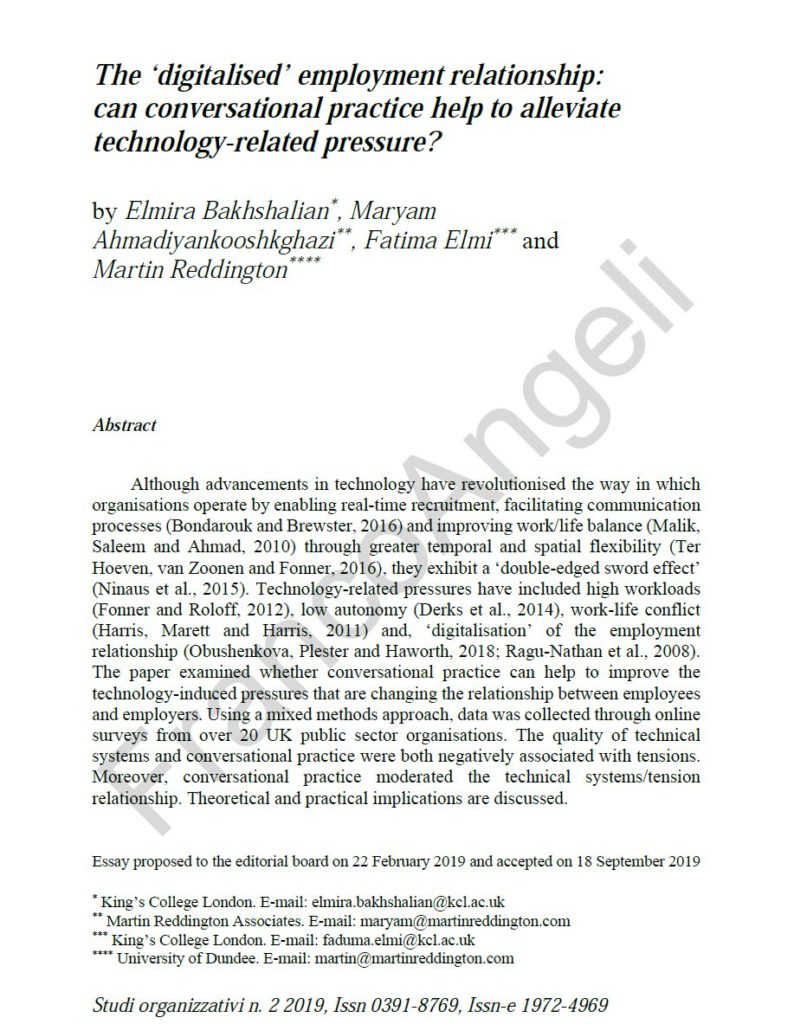The ‘digitalised’ employment relationship: can conversational practice help to alleviate technology?
Elmira Bakhshalian
Maryam Ahmadiyankooshkghazi
Fatima Elmi
Martin Reddington
2019
Although advancements in technology have revolutionised the way in which organisations operate by enabling real-time recruitment, facilitating communication processes (Bondarouk and Brewster, 2016) and improving work/life balance (Malik, Saleem and Ahmad, 2010) through greater temporal and spatial flexibility (Ter Hoeven, van Zoonen and Fonner, 2016), they exhibit a ‘double-edged sword effect’ (Ninaus et al., 2015). Technology-related pressures have included high workloads (Fonner and Roloff, 2012), low autonomy (Derks et al., 2014), work-life conflict (Harris, Marett and Harris, 2011) and, ‘digitalisation’ of the employment relationship (Obushenkova, Plester and Haworth, 2018; Ragu-Nathan et al., 2008). The paper examined whether conversational practice can help to improve the technology-induced pressures that are changing the relationship between employees and employers. Using a mixed methods approach, data was collected through online surveys from over 20 UK public sector organisations. The quality of technical systems and conversational practice were both negatively associated with tensions. Moreover, conversational practice moderated the technical systems/tension relationship. Theoretical and practical implications are discussed.

Bakhshalian, E., Ahmadiyankooshkghazi, M., Elmi, F., Reddington, M. (2019). “The ‘Digitalised’ employment relationship: can conversational practice help to alleviate technology-related pressure?”, In: Studi Organizzativi, Special issue on “HRM 4.0 for Human-Centred Organizations”, 2: 108-136, DOI:10.3280/SO2019-002005